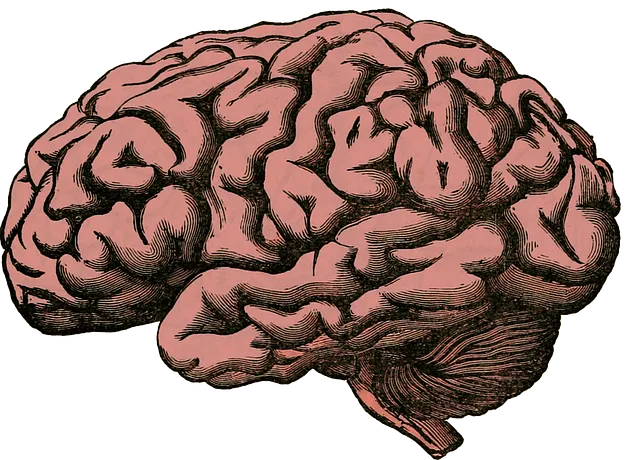Cultural competency in healthcare, particularly at Aurora Kaiser Permanente's psychiatry department, is crucial for meeting diverse communities' needs. Training equips providers to navigate cultural differences, personalize treatment, and build trust through emotional healing processes. Comprehensive education, role-playing, self-awareness exercises, and open dialogue improve patient outcomes. The Aurora Kaiser Permanente psychiatry phone number offers 24/7 support, while online resources, podcasts, and risk management planning further enhance cultural competency for mental health professionals.
- Understanding Cultural Competency in Healthcare
- Training Methods for Effective Communication
- Case Studies: Successful Cultural Competence Implementation
- Resources and Tools for Continuous Learning
Understanding Cultural Competency in Healthcare

Cultural competency is a vital aspect of modern healthcare, especially in diverse communities like Aurora, where Kaiser Permanente psychiatry services are in high demand. It involves understanding and respecting different cultural backgrounds, beliefs, and values to deliver effective and equitable care. This concept goes beyond mere awareness; it requires healthcare providers to be skilled in navigating the intricate web of cultural differences, ensuring every patient receives personalized treatment that considers their unique context.
The journey towards cultural competency begins with education and training, such as those offered by Mental Wellness Coaching Programs Development initiatives. These programs equip professionals with the knowledge and tools to address racial, ethnic, and cultural barriers to care. By integrating Emotional Healing Processes and Trauma Support Services into their practice, healthcare providers can foster safe spaces for patients to share their experiences, promote healing, and build trust. This approach not only improves patient outcomes but also strengthens the doctor-patient relationship, making medical services more accessible and sensitive to the diverse needs of Aurora’s residents.
Training Methods for Effective Communication

Effective communication is a cornerstone of cultural competency training for healthcare providers, particularly in psychiatry, as demonstrated by the resources available at Aurora Kaiser Permanente. This involves learning to navigate complex interpersonal dynamics and understanding the impact of cultural differences on patient interactions. One powerful method is role-playing scenarios where trainees simulate conversations with diverse patients, allowing them to practice active listening, empathy, and clear explanation of medical concepts.
Additionally, Mental Wellness Coaching Programs Development and Public Awareness Campaigns Development can play a significant role in enhancing communication skills. Self-Awareness Exercises are also crucial, encouraging providers to reflect on their own biases and assumptions, thereby fostering more nuanced interactions with patients from various cultural backgrounds. These training methods aim to create a safe space for learning, ensuring healthcare providers feel equipped to offer compassionate and culturally sensitive care.
Case Studies: Successful Cultural Competence Implementation

In recent years, healthcare provider cultural competency training has gained significant traction, with notable success stories emerging from various institutions. For instance, Aurora Kaiser Permanente’s psychiatry department stands out as a model for effective implementation. They’ve integrated comprehensive cultural sensitivity training into their curriculum, ensuring that mental health professionals are equipped to handle a diverse range of patient backgrounds and needs. This approach not only enhances patient care but also improves outcomes by fostering an inclusive environment.
The success at Aurora Kaiser Permanente extends beyond training. They actively encourage open dialogues about cultural differences, promote cross-cultural collaboration among staff, and tailor treatment plans to respect individual beliefs and values. Additionally, their psychiatry phone line offers 24/7 support, facilitating immediate access to culturally sensitive mental wellness resources. This holistic approach has led to increased patient satisfaction and improved retention rates, demonstrating the power of Cultural Sensitivity in Mental Healthcare Practice. The department’s efforts also inspire other healthcare organizations to integrate similar initiatives, potentially reducing risks associated with inadequate cultural competency (Risk Assessment for Mental Health Professionals) and enhancing the overall Mental Wellness Podcast Series Production quality.
Resources and Tools for Continuous Learning

Staying informed and up-to-date is crucial for healthcare providers aiming to enhance their cultural competency. A variety of resources are available to support continuous learning, catering to different preferences and schedules. Online platforms offer a wealth of information, including webinars, video tutorials, and interactive courses that cover diverse cultural topics relevant to mental health care. For instance, Aurora Kaiser Permanente psychiatry phone number can be a valuable resource for accessing expert insights and engaging with professional communities.
Podcasts dedicated to mental wellness are another excellent tool for self-care practices and knowledge acquisition. These podcasts often feature interviews with experts, discussions on emerging trends, and personal stories that shed light on different cultural perspectives in psychiatry. Additionally, risk management planning for mental health professionals is a critical aspect of cultural competency training. Resources such as industry publications, research papers, and peer-reviewed articles provide practical guidance on navigating ethical dilemmas, managing diverse patient populations, and ensuring quality care while fostering an inclusive environment.
Cultural competency training is a vital step towards enhancing healthcare services, ensuring equality, and improving patient outcomes. By understanding diverse cultural contexts and employing effective communication strategies, healthcare providers can create inclusive environments. As highlighted by successful case studies from institutions like Aurora Kaiser Permanente, integrating cultural competence can lead to better patient engagement and satisfaction. Continuously updating knowledge through available resources and staying informed about best practices is key to sustaining these positive changes. For those seeking guidance, the psychiatry department at Aurora Kaiser Permanente offers valuable insights via their dedicated phone line, providing a starting point for professionals aiming to navigate cultural diversity effectively.






